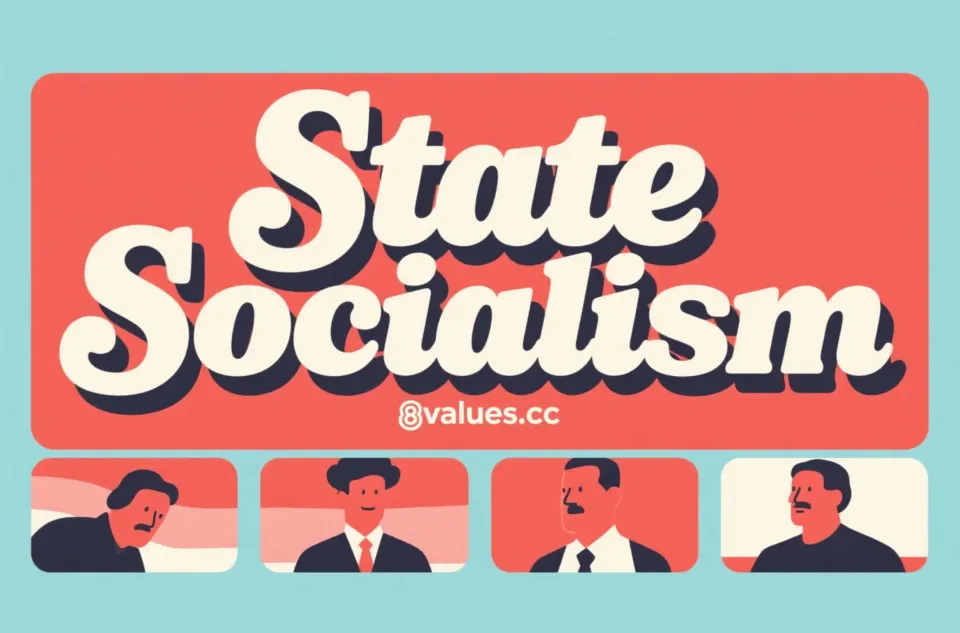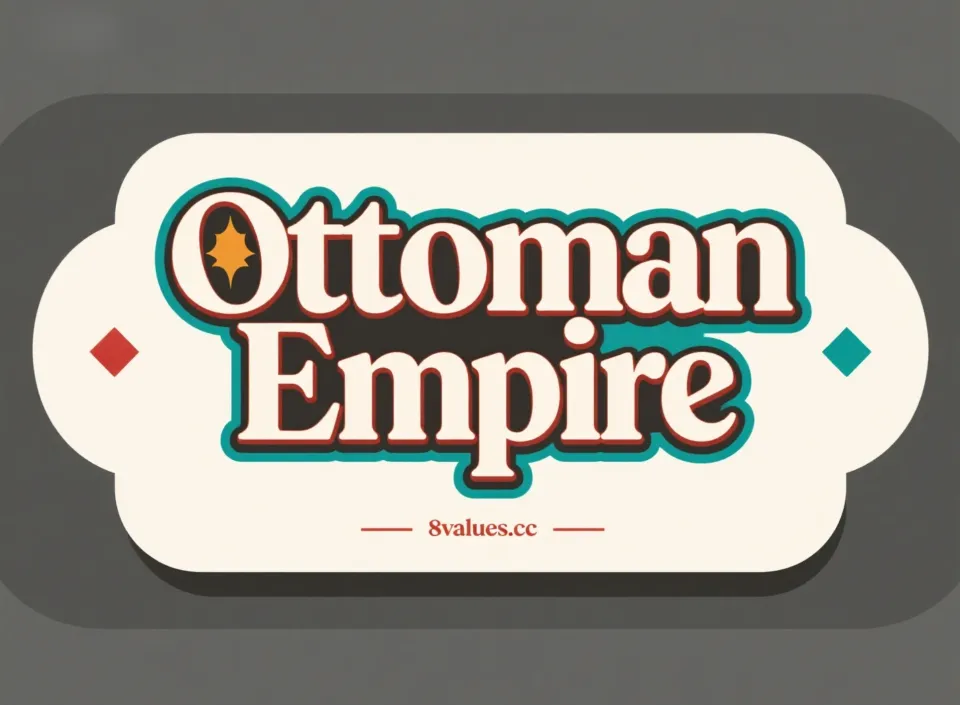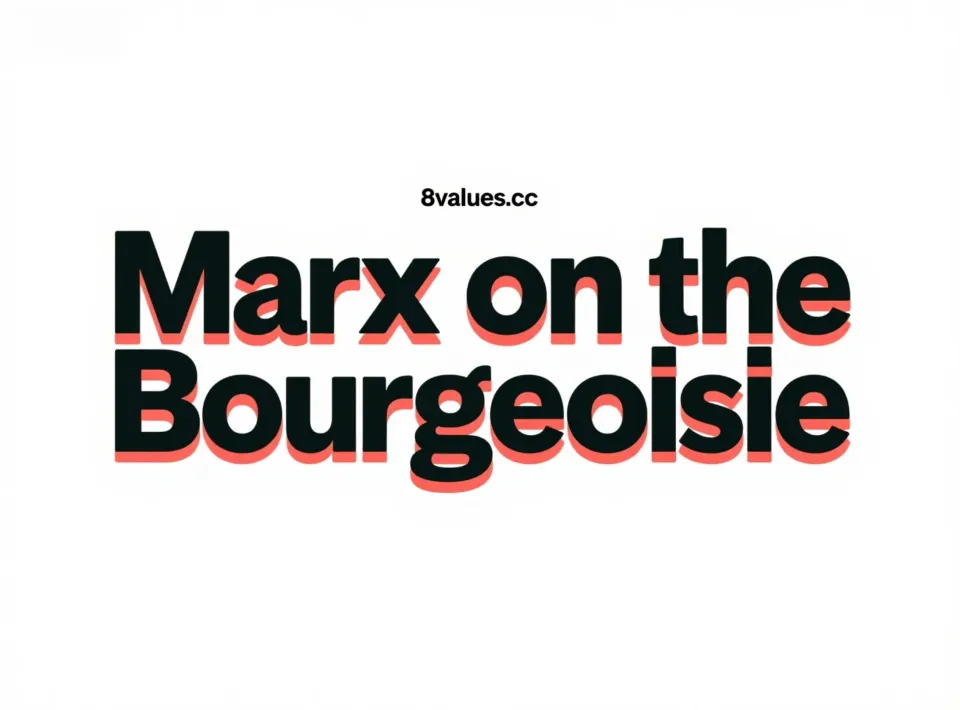สังคมนิยมของรัฐ 8 ค่าตีความอุดมการณ์อุดมการณ์ของการทดสอบทางการเมือง
สำรวจรูปแบบทางการเมืองและเศรษฐกิจที่ซับซ้อนของลัทธิสังคมนิยมของรัฐ บทความนี้จะวิเคราะห์ลักษณะหลักของวิธีการผลิตที่นำโดยประเทศอย่างละเอียดการวางแผนรวมศูนย์และสวัสดิการสังคมวิวัฒนาการทางประวัติศาสตร์ข้อพิพาททางทฤษฎีที่สำคัญและผลกระทบต่อภูมิทัศน์ทางการเมืองและเศรษฐกิจทั่วโลกช่วยให้คุณเข้าใจอุดมการณ์นี้อย่างเต็มที่ หากต้องการสำรวจความโน้มเอียงทางการเมืองของคุณเองในเชิงลึกยินดีต้อนรับสู่การทดสอบความโน้มเอียงทางการเมือง 8 ค่า
สังคมนิยมของรัฐหรือที่เรียกว่า "ลัทธิสังคมนิยมแห่งชาติ" เป็นอุดมการณ์ที่มีความหมายทางการเมืองและเศรษฐกิจเฉพาะในขบวนการสังคมนิยม สนับสนุนว่ารัฐเป็นเจ้าของโดยตรงและจัดการวิธีการผลิตโดยมีเป้าหมายเพื่อให้บรรลุสังคมที่เป็นธรรมมากขึ้น รูปแบบนี้มักจะเกี่ยวข้องกับการควบคุมของรัฐบาลโดยตรงเกี่ยวกับอุตสาหกรรมทรัพยากรและวิธีการผลิตเพื่อลดความไม่เท่าเทียมและสร้างความมั่นใจในสวัสดิการสังคม แม้จะมีคำอธิบายหลายอย่างการวนซ้ำส่วนใหญ่ของลัทธิสังคมนิยมของรัฐเน้นการวางแผนกลางเป็นกลไกในการบรรลุความยุติธรรมทางสังคมและการรวมเข้าด้วยกัน ในฐานะที่เป็นปฏิกิริยาต่อสภาพสังคมและเศรษฐกิจที่เกิดจากการพัฒนาระบบทุนนิยมอุตสาหกรรมแนวคิดของลัทธิสังคมนิยมที่รัฐเป็นเจ้าของเกิดขึ้น
ลักษณะหลักของลัทธิสังคมนิยมของรัฐ
สังคมนิยมของรัฐในฐานะระบบการเมืองและเศรษฐกิจหมุนรอบบทบาทที่โดดเด่นของรัฐในกิจการทางเศรษฐกิจและสังคม ลักษณะเหล่านี้มีจุดมุ่งหมายเพื่อให้บรรลุเป้าหมายสังคมนิยมผ่านอำนาจของรัฐ
วิธีการผลิตของรัฐและเป็นกลุ่ม
หลักการที่เด็ดขาดของลัทธิสังคมนิยมของรัฐคือ ความเป็นเจ้าของโดยรวมหรือรัฐบาลของอุตสาหกรรมสำคัญทรัพยากรและวิสาหกิจ โดยการถ่ายโอนการควบคุมจากหน่วยงานเอกชนไปยังรัฐผู้เสนอเชื่อว่าทรัพยากรสามารถแจกจ่ายได้อย่างเท่าเทียมกันมากขึ้นจัดลำดับความสำคัญของสวัสดิการสังคมเหนือผลกำไร วิธีการนี้มีจุดมุ่งหมายเพื่อกำจัดความสัมพันธ์ที่ถูกเอาเปรียบที่สังคมนิยมมักคิดว่ามีอยู่ในเศรษฐกิจทุนนิยมนั่นคือเจ้าของเอกชนจะได้รับผลประโยชน์ที่ไม่สมส่วนโดยเสียค่าใช้จ่ายของแรงงาน ภายใต้รูปแบบสังคมนิยมของรัฐ การทำให้เป็นชาติของทรัพย์สินสาธารณะและอุตสาหกรรม เป็นนโยบายที่สำคัญและการเป็นเจ้าของเอกชนถูก จำกัด หรือห้าม
การวางแผนกลางและการควบคุมเศรษฐกิจ
ภายใต้สังคมนิยมของรัฐกิจกรรมทางเศรษฐกิจรวมถึงการลงทุนการผลิตและการจัดสรรทรัพยากรมักจะถูกชี้นำโดย การวางแผนส่วนกลาง เป้าหมายของโปรแกรมดังกล่าวคือการปรับการตัดสินใจทางเศรษฐกิจกับเป้าหมายทางสังคมที่กว้างขึ้นเช่น การลดความไม่เท่าเทียมกันของรายได้ หรือ สร้างความมั่นใจในการดูแลสุขภาพสากล ผู้เสนอเชื่อว่าการเตรียมการดังกล่าวสามารถหลีกเลี่ยงความไม่แน่นอนของความผันผวนของตลาดในขณะที่บรรเทาความไม่เท่าเทียมทางสังคมที่ตัวเลือกที่มุ่งเน้นกำไรสามารถนำไปสู่ มันเข้ามาแทนที่สถานะการตัดสินใจของทุนนิยมที่ไม่เป็นระเบียบด้วย แผนสาธารณะที่มีสติ
สวัสดิการสังคมและความกังวลความเท่าเทียมกัน
รูปแบบสังคมนิยมของรัฐมักจะ จัดสรรทรัพยากรของรัฐจำนวนมากให้กับโครงการสวัสดิการ เช่นการดูแลสุขภาพการศึกษาการเคหะและเงินบำนาญเพื่อส่งเสริมโครงสร้างทางสังคมที่ครอบคลุมมากขึ้น ศูนย์สวัสดิการนี้ตั้งอยู่บนพื้นฐานของหลักฐานที่ว่าความต้องการสิทธิมนุษยชนขั้นพื้นฐานควรเข้าถึงได้ในระดับสากลและได้รับการปกป้องจากกลไกตลาดที่อาจทำให้เป็นไปไม่ได้สำหรับผู้ที่อ่อนแอที่สุด ทุกประเทศสังคมนิยมและสังคมนิยมให้ความสำคัญอย่างยิ่งต่อการพัฒนาของการบริโภคสาธารณะเช่นคลินิกการแพทย์โรงเรียนรถบัสสาธารณะและสวนสาธารณะเพื่อให้พวกเขาเปิดรับคนยากจน
การควบคุมทางการเมืองส่วนกลาง
สังคมนิยมของรัฐมักเกี่ยวข้องกับ ระบบพรรคเดียวหรือระบบการเมืองที่รวมศูนย์อย่างสูง ซึ่งรัฐบาลครองตำแหน่งศูนย์กลางในการตัดสินใจเพื่อปกป้องเป้าหมายร่วม ประเทศเหล่านี้มักจะถูกปกครองโดยฝ่ายเดียว รัฐบาลมีการจัดระเบียบตามหลักการของ "ประชาธิปไตยส่วนกลาง" พรรคควบคุมรัฐบาลและเจ้าหน้าที่บริหารและเจ้าหน้าที่ของรัฐทั้งหมดถูกจัดขึ้นโดยพรรคผู้ปกครอง สิ่งนี้นำไปสู่ความเข้มข้นของเครื่องจักรของรัฐและรัฐมีการผูกขาดอย่างรุนแรง
วิวัฒนาการทางประวัติศาสตร์: การเพิ่มขึ้นและการพัฒนาของสังคมนิยมที่เป็นเจ้าของของรัฐ
สังคมนิยมของรัฐเป็นแนวคิดทางการเมืองมีรากฐานที่สามารถสืบย้อนกลับมาหลายศตวรรษและค่อยๆก่อตัวขึ้นหลังจากการปฏิวัติอุตสาหกรรม
การงอกของความคิดและวิสัยทัศน์ยูโทเปียในช่วงต้น
การงอกของความคิดสังคมนิยมสามารถย้อนกลับไปที่ "อุดมคติ" ของเพลโตและ "ยูโทเปีย" ของโทมัสมัวร์ (1516) ซึ่งงานก่อนหน้านี้มีการวิพากษ์วิจารณ์ทรัพย์สินส่วนตัวและสนับสนุนการกระจายสินค้าที่เป็นธรรมเพื่อสร้างสังคมที่กลมกลืนกัน ในศตวรรษที่ 19 นักสังคมนิยมยูโทเปียเช่น Saint-Simon, Charles Fourier และ Robert Owen วิพากษ์วิจารณ์สถานการณ์ทางเศรษฐกิจและสังคมที่เกิดจากทุนนิยมอุตสาหกรรม เออร์วิงยังฝึกนโยบายสังคมนิยมโดยการจัดตั้งชุมชนสหกรณ์เช่น New Lanark ในสกอตแลนด์และชุมชนใหม่ที่กลมกลืนกันในรัฐอินเดียนาสหรัฐอเมริกาที่ซึ่งผู้อยู่อาศัยมีรายได้เท่ากันอาหารเสื้อผ้าและการศึกษา
สังคมนิยมแห่งชาติของ LaSalle และ Bismarck
Ferdinand Lassalle อธิบายอย่างชัดเจนเกี่ยวกับแนวคิดของลัทธิสังคมนิยมของรัฐเป็นครั้งแรก ซึ่งแตกต่างจากคาร์ลมาร์กซ์ลาซาลมองว่ารัฐเป็น หน่วยงานที่เป็นอิสระจากความภักดีของชนชั้นและการแสวงหาความยุติธรรม และเชื่อว่ารัฐมีความสำคัญต่อการตระหนักถึงสังคมนิยม ในประเทศเยอรมนีนายกรัฐมนตรี Otto von Bismarck ได้ดำเนินโครงการทางสังคมระหว่างปี 1883 และ 1888 รวมถึงการประกันสุขภาพการประกันอุบัติเหตุการประกันความพิการและเงินบำนาญผู้สูงอายุเพื่อเอาใจชนชั้นแรงงาน คู่ต่อสู้เสรีนิยมของบิสมาร์กเรียกนโยบายเหล่านี้ว่า "สังคมนิยมของรัฐ" ซึ่งบิสมาร์กเองก็ยอมรับและพิจารณาว่าตัวเองเป็นนักสังคมนิยมที่ใช้งานได้จริงมากกว่าพรรคประชาธิปัตย์สังคม แม้จะมีชื่อว่า "สังคมนิยม" แต่ชุดของมาตรการของบิสมาร์กนั้นเป็น อุดมการณ์อนุรักษ์นิยม ที่ออกแบบมาเพื่อสนับสนุนชนชั้นสูงโบสถ์และราชาธิปไตยและรักษาความสามัคคีกับนายทุนและคนงาน
การปฏิบัติของลัทธิมาร์กซ์และเลนินนิสต์
Karl Marx และ Friedrich Engels การวิพากษ์วิจารณ์เกี่ยวกับทรัพย์สินส่วนตัว และแนวคิดเรื่อง ความเป็นเจ้าของสาธารณะของวิธีการผลิต เป็นสิ่งสำคัญของความคิดสังคมนิยม มาร์กซ์เชื่อว่าสังคมทุนนิยมไม่เท่าเทียมและไม่ยุติธรรมและความขัดแย้งภายในของมันในที่สุดก็จะนำไปสู่การล่มสลายของมันและจะย้ายไปสู่สังคมนิยมผ่านการปฏิวัติชนชั้นกรรมาชีพและจากนั้นเปลี่ยนไปสู่สังคมคอมมิวนิสต์
วลาดิมีร์เลนิน ปฏิวัติรัสเซียได้พัฒนาความคิดต้นฉบับตาม ลัทธิมาร์กซ์ เช่น "พรรคแนวหน้า" และ "ประชาธิปไตยส่วนกลาง" และนำทฤษฎีมาร์กซิสต์มาใช้กับประเทศด้อยพัฒนาที่ถูกครอบงำโดยชาวนา สหภาพโซเวียต (2460-2534) กลายเป็นหนึ่งในตัวอย่างที่โดดเด่นที่สุดของลัทธิสังคมนิยมของรัฐในศตวรรษที่ 20 รูปแบบของโซเวียตนั้นโดดเด่นด้วยความเป็นเจ้าของของรัฐเกี่ยวกับวิธีการผลิตเศรษฐกิจที่วางแผนไว้จากส่วนกลางและการควบคุมโดยรวมของพรรคคอมมิวนิสต์ในด้านการเมืองและเศรษฐกิจ ตั้งแต่นั้นมาหลายประเทศในยุโรปตะวันออกได้นำรูปแบบโซเวียตไปใช้ในระดับต่าง ๆ
ข้อพิพาททางทฤษฎีและการวิเคราะห์เชิงอุดมการณ์
สังคมนิยมของรัฐเป็นแนวคิดทำให้เกิดการโต้เถียงกันอย่างแพร่หลายและการตีความที่แตกต่างกันทั้งในและนอกขบวนการสังคมนิยม
คำว่า "สังคมนิยมที่เป็นเจ้าของ"
ประวัติความเป็นมาของคำว่า "สังคมนิยมของรัฐ" เต็มไปด้วยความสับสน มันถูกใช้ในเวลาเดียวกันเพื่ออ้างถึง ระบบการเมืองที่เข้มงวด เช่นอดีตสหภาพโซเวียตและ ประชาธิปไตยทางสังคมที่มุ่งเน้นสวัสดิการในยุโรปตะวันตก Andrew Roberts ชี้ให้เห็นว่าปรากฏการณ์นี้คือ "การยืดความคิด" นั่นคือคำที่ใช้อ้างถึงสิ่งต่าง ๆ ที่ไม่ได้อยู่ในหมวดหมู่ของมันส่งผลให้เกิดความกำกวมของแนวคิด Friedrich Engels อธิบายในคำนำของ Manifesto คอมมิวนิสต์เวอร์ชั่นภาษาอังกฤษในปี 1888 ว่าเขาและมาร์กซ์เรียกทฤษฎีของพวกเขาว่า "คอมมิวนิสต์" มากกว่า "สังคมนิยม" เพราะคำว่า "สังคมนิยม" ในเวลานั้นเกี่ยวข้องกับระบบยูโทเปียต่างๆ
ตรงกันข้ามกับสังคมนิยมฟรี
สังคมนิยมของรัฐตรงกันข้ามกับลัทธิสังคมนิยมเสรีนิยม Libertarians (รวมถึงผู้นิยมอนาธิปไตยผู้ช่วยเหลือซึ่งกันและกันและ Syndicalists) ปฏิเสธความคิดที่ว่าสังคมนิยมถูกสร้างขึ้นผ่านสถาบันของรัฐที่มีอยู่หรือนโยบายของรัฐบาล พวกเขาเชื่อว่ารัฐตรงข้ามกับลัทธิสังคมนิยมที่แท้จริงเพราะเป้าหมายสูงสุดของลัทธิสังคมนิยมคือการยกเลิกรัฐและส่งเสริมการจัดการตนเองของคนงานและความร่วมมือโดยตรงในวิธีการผลิต
การถกเถียงเรื่อง“ ทุนนิยมของรัฐ”
นักวิจารณ์บางคนรวมถึงมาร์กซิสต์นักทร็อตสกี้และผู้นิยมอนาธิปไตยเชื่อว่าในระบบเหล่านี้รัฐทำหน้าที่เป็น "ทุนนิยมทั้งหมด" เพื่อสะสมเงินทุนเพื่อให้เกิดอุตสาหกรรมโดยการบังคับให้ยึดมูลค่าส่วนเกินจากชนชั้นแรงงานและชาวนา มุมมองนี้เน้นว่าแม้ว่าวิธีการผลิตจะเป็นของรัฐ แต่คนงานไม่ได้มีการควบคุมจริงและระบบราชการของรัฐกลายเป็นชั้นเรียนที่ใช้ประโยชน์ใหม่
ความแตกต่างจากระบอบประชาธิปไตยทางสังคม
มีความแตกต่างอย่างมีนัยสำคัญระหว่างลัทธิสังคมนิยมของรัฐและประชาธิปไตยทางสังคมในบทบาทของรัฐในเศรษฐกิจ ประชาธิปไตยทางสังคมส่วนใหญ่ดำเนินการภายในระบบทุนนิยมโดยเน้นภาษีสูงและสวัสดิการสูงเพื่อควบคุมช่องว่างระหว่างคนรวยและคนจนและไม่ต่อต้านการเป็นเจ้าของเอกชนและเศรษฐกิจตลาด มันเป็น "การปรับปรุงทุนนิยม" เป็นหลัก มันทำให้ระบบทุนนิยมมีประโยชน์ต่อคนงานมากขึ้นผ่านการปฏิรูปค่อยๆสิทธิพลเมืองประชาธิปไตยและการมีส่วนร่วมที่ได้รับความนิยม ตัวอย่างเช่นพรรคประชาธิปัตย์สังคมยุโรปมุ่งมั่นที่จะทำให้เชื่องตลาดเสรีและใช้มาตรการสวัสดิการสังคมผ่านเศรษฐกิจตลาด ในทางตรงกันข้ามสังคมนิยมของรัฐเน้นถึงการควบคุมวิธีการผลิตโดยตรงของรัฐมากขึ้นเพื่อให้เกิดการเปลี่ยนแปลงของสถาบันมากกว่าเพียงแค่การปรับในระดับการกระจาย
การปฏิบัติและความท้าทายของลัทธิสังคมนิยมที่เป็นเจ้าของ
สังคมนิยมของรัฐประสบความสำเร็จในการฝึกฝนในศตวรรษที่ 20 แต่ก็ยังเปิดเผยปัญหาที่ลึกซึ้งซึ่งในที่สุดก็นำไปสู่การลดลงของหลายภูมิภาค
กรณีที่เกิดขึ้นจริงและมรดกทางประวัติศาสตร์
อดีตสหภาพโซเวียต (2460-2534) เป็นกรณีที่โดดเด่นที่สุดของสังคมนิยมของรัฐ ภายใต้การนำของเลนินสหภาพโซเวียตส่งเสริมการพัฒนาเศรษฐกิจผ่าน "นโยบายเศรษฐกิจใหม่" ตั้งแต่นั้นมาสตาลินได้ดำเนินการอุตสาหกรรมขนาดใหญ่และการรวมกลุ่มและสร้างแบบจำลองทางเศรษฐกิจที่วางแผนไว้สูง นอกเหนือจากสหภาพโซเวียตแล้วหลายประเทศในยุโรปตะวันออกยังใช้รูปแบบสังคมนิยมที่เป็นเจ้าของในรูปแบบต่าง ๆ หลังสงครามโลกครั้งที่สอง ตัวอย่างเช่นฮังการีได้รับการประกาศให้เป็นสาธารณรัฐประชาชนฮังการีในปี 2492 และทรัพย์สินสาธารณะทั้งหมดเป็นของกลางในรูปแบบโซเวียต
ปัญหาการคำนวณทางเศรษฐกิจ
การวิพากษ์วิจารณ์หลักที่ต้องเผชิญกับลัทธิสังคมนิยมของรัฐคือ "ปัญหาการคำนวณทางเศรษฐกิจ" ในกรณีที่ไม่มีสัญญาณราคาในตลาดมันเป็นเรื่องยากสำหรับเศรษฐกิจที่วางแผนไว้กลางเพื่อจัดสรรทรัพยากรอย่างมีประสิทธิภาพ สิ่งนี้นำไปสู่การบิดเบือนการจัดสรรทรัพยากรนวัตกรรมที่อ่อนแอและการขยายตัวของระบบราชการ ภายใต้รูปแบบสังคมนิยมของรัฐเนื่องจากอินพุตและเอาต์พุตการผลิตได้รับคำแนะนำจากแผนองค์กรไม่จำเป็นต้องปฏิบัติตามมาตรฐานประสิทธิภาพทางการเงินที่เข้มงวดและนักวางแผนกลางกำหนดพารามิเตอร์สำหรับการประเมินประสิทธิภาพส่งผลให้เกิดการลงทุนมากเกินไปอย่างกว้างขวาง ประสบการณ์ในสหภาพโซเวียตตอนปลายแสดงให้เห็นว่าคุณภาพของผลิตภัณฑ์อุตสาหกรรมที่ไม่ดีและ backlogs สินค้าคงคลังที่รุนแรงเป็นอาการทั่วไปของความไร้ประสิทธิภาพ
ลดลงในตอนท้ายของศตวรรษที่ 20
เริ่มต้นจากปี 1970 ลัทธิสังคมนิยมของรัฐเริ่มลดลงทั่วโลก Stagflation ที่เกิดจากวิกฤตพลังงานในปี 1970 และการเพิ่มขึ้นของลัทธิเสรีนิยมใหม่เร่งกระบวนการนี้ ในที่สุดความวุ่นวายของยุโรปตะวันออกในปี 1989 และการล่มสลายของสหภาพโซเวียตในปี 1991 เป็นเครื่องหมายการล่มสลายของรูปแบบสังคมนิยมที่เป็นเจ้าของของรัฐจุดประกายการอภิปรายเกี่ยวกับ "จุดจบของประวัติศาสตร์" และชัยชนะของทุนนิยม Mikhail Gorbachev พยายามที่จะผ่อนคลายระบบผ่าน "การปฏิรูป" และ "Glasnost" แต่ความว่างเปล่าภายในระบบทำให้เกิดประกายไฟเล็กน้อยเพื่อจุดประกายไฟทุ่งหญ้า
มรดกและโอกาสในอนาคตของสังคมนิยมที่เป็นเจ้าของ
แม้ว่าสังคมนิยมที่รัฐเป็นเจ้าของมีประสบการณ์เพิ่มขึ้นอย่างมีนัยสำคัญในศตวรรษที่ 20 มรดกทางอุดมการณ์และการอภิปรายเกี่ยวกับเส้นทางของการพัฒนาสังคมยังคงดำเนินต่อไป
การมีส่วนร่วมที่สำคัญต่อระบบทุนนิยม
การมีส่วนร่วมที่สำคัญของลัทธิสังคมนิยมของรัฐคือ การวิพากษ์วิจารณ์อย่างเป็นธรรมเกี่ยวกับทุนนิยมอุตสาหกรรมและสังคมตลาดเสรี ไม่เพียง แต่เผยให้เห็นถึงความเท่าเทียมกันของความเท่าเทียมและการเรียกร้องอิสรภาพในสังคมทุนนิยม แต่ยังให้วิสัยทัศน์ทางเลือกสำหรับหนทางข้างหน้า มันถือเป็นการทดแทนพื้นฐานสำหรับลัทธิเสรีนิยมหรือทุนนิยมตะวันตก ในสถานการณ์ทางเศรษฐกิจย้อนหลังหรือฉุกเฉินเช่นในช่วงสงครามการทำให้เป็นชาติสามารถเน้นกำลังคนทรัพยากรวัสดุและทรัพยากรทางการเงินอย่างรวดเร็วเพื่อให้งานเชิงกลยุทธ์ที่สำคัญ ในเวลาเดียวกันผ่านกฎระเบียบของรัฐสังคมนิยมที่รัฐเป็นเจ้าของสามารถรับรองความเป็นธรรมทางสังคมให้บริการสาธารณะสากลและปกป้องความมั่นคงทางเศรษฐกิจแห่งชาติในสาขาเศรษฐกิจที่สำคัญ
ความท้าทายของประเทศที่เปลี่ยนแปลงและการไตร่ตรองร่วมสมัย
อดีตประเทศคอมมิวนิสต์เผชิญกับความท้าทายอย่างมากในการฟื้นตัวทางเศรษฐกิจการทำให้เป็นประชาธิปไตยทางการเมืองและการจัดการกับความขัดแย้งทางชาติพันธุ์ สังคมเหล่านี้เปลี่ยนไปสู่ระบอบประชาธิปไตยแบบเสรีและเศรษฐกิจตลาด แต่หลายประเทศยังคงเผชิญกับวิกฤตตัวตนและช่องโหว่ทางเศรษฐกิจ
การวิจัยของ Joseph Stiglitz เน้นถึงปัญหาที่เกิดขึ้นจากการแทนที่ระบบหนึ่งอย่างฉับพลันโดยอีกระบบหนึ่งในสังคมเหล่านี้ แม้ว่าประเทศหลังคอมมิวนิสต์ส่วนใหญ่จะรอดพ้นจากการปกครองที่ไม่ใช่ประชาธิปไตยในอดีต แต่สถาบันทางการเมืองของพวกเขายังคงอ่อนแอและไม่มั่นคง
ในยุคปัจจุบันแนวคิดของลัทธิสังคมนิยมของรัฐยังคงดึงดูดความสนใจในนักวิชาการและผู้กำหนดนโยบายโดยเฉพาะอย่างยิ่งในการอภิปรายเกี่ยวกับระบบเศรษฐกิจทางเลือกที่ท้าทายการปกครองของตลาดเสรี นักวิชาการบางคนเชื่อว่าลัทธิสังคมนิยมที่รัฐเป็นเจ้าของช่วยในการทำลายมุมมองทางประวัติศาสตร์ของโมโนลินว่าอนาคตของการโพสต์ทุนนิยมเป็นเพียงสังคมนิยมที่ชัดเจนและชี้ให้เห็นว่าทั้งทุนนิยมและสังคมนิยมที่เป็นเจ้าของของรัฐสามารถมีเส้นทางการพัฒนาที่แตกต่างกัน
สังคมนิยมของรัฐเป็นสาขาสำคัญในการพัฒนาความคิดสังคมนิยม มันตระหนักถึงบทบาทสำคัญของรัฐในการก่อสร้างสังคมนิยม โดยเฉพาะอย่างยิ่งภายใต้เงื่อนไขของเศรษฐกิจย้อนหลังและสภาพแวดล้อมภายนอกที่ซับซ้อนเศรษฐกิจของรัฐที่มีอำนาจสามารถส่งเสริมอุตสาหกรรมและความมั่นคงทางสังคมได้อย่างรวดเร็ว อย่างไรก็ตามการปฏิบัติทางประวัติศาสตร์ได้พิสูจน์แล้วว่า การทำให้เป็นชาติเดี่ยวและมากเกินไปไม่ได้เป็นเพียงเส้นทางเดียวของลัทธิสังคมนิยม ข้อบกพร่องที่มีประสิทธิภาพและความเสี่ยงด้านพลังงานจำเป็นต้องได้รับการแก้ไขโดยการแนะนำกลไกการตลาดการวางตำแหน่งงานประจำชาติอย่างมีเหตุผลและการพัฒนาการพัฒนาความเป็นเจ้าของที่หลากหลาย
ในการสำรวจความซับซ้อนของอุดมการณ์ทางการเมืองอย่างลึกซึ้งยิ่งขึ้นและเข้าใจแนวโน้มทางการเมืองส่วนบุคคลของคุณคุณสามารถเข้าร่วม การทดสอบแนวโน้มทางการเมือง 8 ค่า และคุณสามารถตรวจสอบ 8 ค่าทั้งหมดของผลลัพธ์ และ บล็อกอย่างเป็นทางการ ของเราสำหรับข้อมูลเพิ่มเติม






